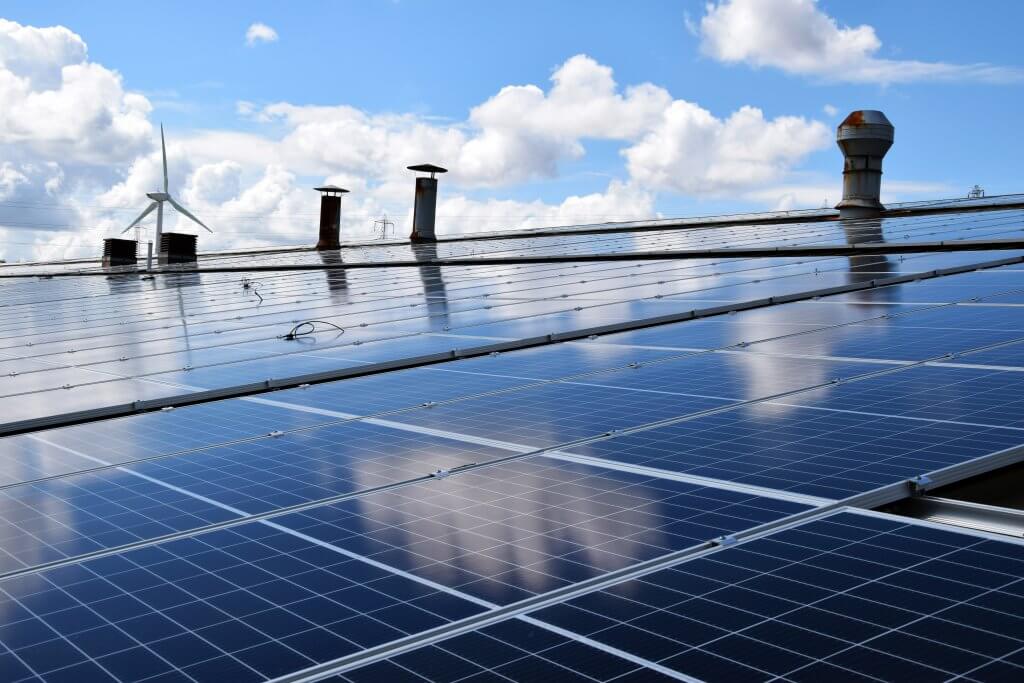
Pairing renewable energy with a dual-chemistry battery energy storage system is the latest innovative project underway by GS Yuasa. Based at their Ebbw Vale factory in Wales, the installation featuring nearly 3,000 solar panels and a combined lead and lithium battery system is forming part of Wales' first dual-chemistry energy centre. Part funded by the European Regional Development Fund (ERDF), the unique integrated energy centre is showcasing the benefits of using complementary battery technologies to drive Europe's green energy ambitions.
The installation of nearly 3,000 solar panels, forming part of Wales’ first dual-chemistry energy centre has been successfully completed at GS Yuasa’s Ebbw Vale factory.
The battery manufacturer announced their partnership with the innovative renewable energy company, Infinite, late last year. Both Infinite and GS Yuasa, along with their partners Albion Capital, are set to launch their first Energy Centre at the Rassau industrial estate in South Wales.
The combination of wind turbines, solar photovoltaics and battery storage will provide reliable, cost efficient and greener power directly to the customer.
Work at the site is moving on apace with the first phase of the unique integrated energy centre – the installation of a 1MWh rooftop solar system at GS Yuasa’s factory, already completed. Approval has also been granted for the building of a wind turbine which will supply electricity directly to the site. The Energy Centre will be linked to an energy storage scheme with its ADEPT battery container bringing together the use of GS Yuasa’s lead acid and lithium batteries, thus offering optimum efficiency and flexibility when managing power across a micro-grid.

Andrew Crossman, Director, Infinite says: “The GSCS Energy Centre represents a step-change in the de-centralised distribution of low carbon and renewable energy. The Rassau scheme aims to share the benefits of multi technology generation within the immediate community, providing discounted renewable power and reducing the CO2 emissions in the area.”
Shaun Gardner, Managing Director, GS Yuasa Manufacturing UK Ltd added: “The project brings a number of benefits to our Ebbw Vale factory and the wider Rassau industrial estate. The unique combination of our lithium and lead-acid batteries, the latter of which are produced on site in South Wales, allows for the storage of greener energy, generated by either solar or wind, to be used at a later date.”
The centre is part of the Generation Storage Consumption Supply project (GSCS) and is one of up to seven local energy centre schemes in South and West Wales to be grant funded by The European Regional Development Fund (ERDF). Match funding of £5.5m has been provided by Infinite’s funding partner, Albion Community Power. The total CAPEX for the schemes is £14.4m with £8.9m provided by the ERDF.
Welsh Government Minister for Climate Change, Julie James said: “Climate Change is at the heart of our decision making and we are committed to accelerating the transition to a low carbon energy system in Wales. The GSCS Energy Centre, alongside the other EU funded local energy schemes, will play an important role in driving action towards our ambition for a more sustainable future for Wales, by providing the benefits of cost-effective, more reliable green energy to local businesses and communities across South and West Wales.”
Marco Yu, Investment Director, Albion Community Power, says: “Albion has over 20 years’ experience funding sustainable energy projects across the UK. We backed the Infinite team in the early stages of its growth and are thrilled to be part of its latest pioneering, multi-technology projects that are leading the way in helping local businesses to decarbonise and reduce energy cost while alleviating the electricity load of the electricity grid network.”
